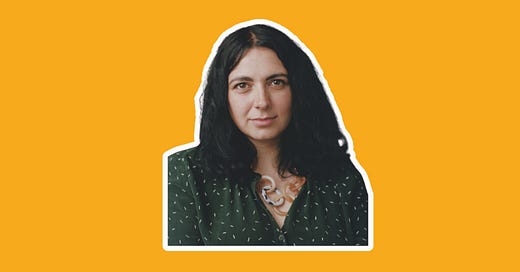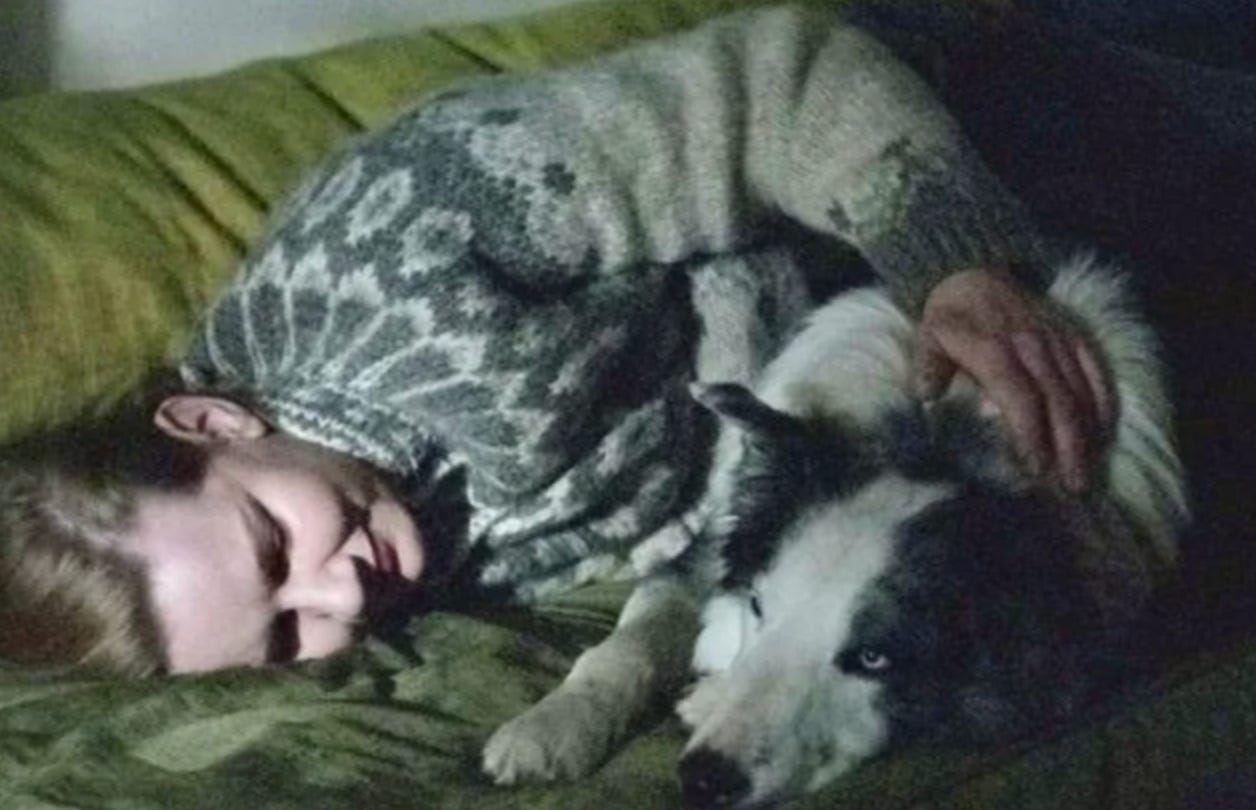Rachelle Atalla is a Scottish-Egyptian novelist, short story writer and screenwriter based in Glasgow. Her short stories have been published widely, she has written for BBC Radio 4, and she is the recipient of a Scottish Book Trust New Writers Award. Her first novel The Pharmacist was shortlisted for the Scottish Fiction Book of the Year, and is now in development for film with Compact Pictures and the BFI. Thirsty Animals is her second novel.
We talked about her books and what she thinks they say about our relationship to work. Stick around until the very end where we discuss the incredible Anatomy of a Fall.
I love book dedications, could you tell me about the dedications to Angus and Sheila?
Angus is my husband. We’ve been together since before I started writing, so it felt appropriate that as a debut I dedicated it to the person that had never laughed at me when I said ‘I’d quite like to be a writer’. Sheila is my mum, she’s retired now but she was a midwife and helped me with the research for Thirsty Animals. She’s really enthusiastic and my biggest champion.
Both of your books feature these characters who have to do a job at the end of the world. Is that saying something about your personal experience of work?
Potentially. A lot of the decisions I make when I’m writing are quite subconscious. I’m not a huge planner. I think it probably stems from the fact that I worked as a community pharmacist for twelve years. It’s a really tough profession and I found it anxiety inducing. So, I was probably projecting a lot of worries about my job alongside worries about the world. Particularly with The Pharmacist, it felt like a microcosm of society. We spend so much of our lives working, often in places we don’t particularly want to be… I think there’s something interesting about the mind games we play, what we tell ourselves.
“If you’re serious about wanting to write, take some classes, meet other writers, learn to take feedback, don’t be precious about it.”
There’s also something about how the meaning of work changes when the world ends? Certainly the work I do would feel quite pointless in a post-apocalyptic scenario.
I’m probably one of those people that if the world was to end in a month’s time, I’d probably keep on working out of denial? It’s one of those things you can control so we cling to it. It’s a framework we understand.
What do you do to summon the inspiration/motivation to write regularly?
I have two young children so I feel like most of my time is school drop-offs and nursery. Once upon a time I was so particular… I had to be in the right cafe, with the right coffee and amount of background noise. Now I’m just like ‘I have three hours, what can I possibly achieve?’. I’m definitely more productive than I’ve ever been.
As you were publishing both of your books, what’s something you learned about the publishing industry that came as a surprise?
You don’t really know what’s coming… When I was waiting for The Pharmacist to come out everything felt so important. I had been hoping for years that I’d get published, so you go through a bit of a rollercoaster. Initially you’re super grateful that someone is behind the novel, that people believe your work is worth publishing. But with a bit of distance now, you have to remember that publishing is a business. It’s a bit of a machine. It’s really good to have an agent that you trust. I never felt like I had to go down a route I didn’t want to, I’ve always felt like my writing is mine. So the editorial side has been lovely. On the flip side, publishing is gruelling. Six months before The Pharmacist came out I stupidly went on NetGalley… I think I was a bit naive… Some of the reviews were lovely but some of them were negative and I remember just like spiralling ‘Oh what have I done? I should never have put myself out there’. It was probably the lowest point my mental health has been. I wasn’t prepared for the fact that once it’s out there you don’t control it anymore. Once you accept that and remember what’s important is your day-to-day life then you put a bit of distance. You realise that even getting lovely reviews won’t make your next book any better.
Depending too much on the lovely reviews may even make the next book worse…
Yeah, so I think I'm at a stage where I just want to write what I want to write and if someone wants to publish that, that’s great.
What advice would you give to people who want to write and publish their work?
I started writing because I wanted a creative outlet, so I took creative writing evening classes. They really changed my life. I started reading things I had never heard about. If you’re serious about wanting to write, take some classes, meet other writers, learn to take feedback, don’t be precious about it. When I started writing short stories I was terrible! But it was the first time in my life that I was like ‘oh this is what it’s like to be truly passionate about something’.
If I died and left this newsletter to you in my inheritance, who would you interview next?
I’m terrible at answering these questions. I want to say someone really profound… Actually, Michel Faber. I love his writing. But he’s famous for not speaking to people…
What’s been inspiring you lately?
A film called Anatomy of a Fall (2023)…
I loved that movie so much!
It’s perfection. It’s a film I’m jealous of, I wish I had written that. It really intrigued me because the novel I’m working on at the moment has a lot to do with your version of truth and what you tell yourself. The thing I was trying to grapple with in my work, they just did beautifully.





